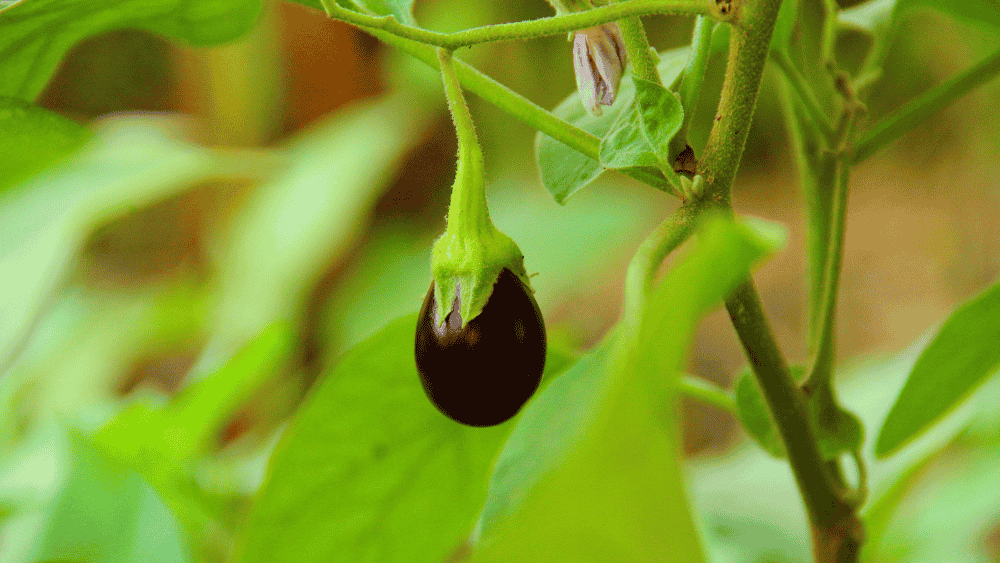
Essential Tips for Brinjal Plant Care Every Farmer Should Follow
Share
Brinjal, also known as eggplant and aubergine, is one of the most widely cultivated vegetables in India and across the world. Its popularity among farmers stems from its adaptability, demand in the market, and nutritional benefits.
However, the successful cultivation of Brinjal doesn’t come without challenges.
From treating pest infestations to understanding soil requirements and growing healthy plants, every detail matters when it comes to effective brinjal plant care.
Farmers who invest their time and effort in understanding proper growing techniques can enjoy higher yields, better-quality produce, and reduced losses. With the most effective brinjal plant growing tips, it becomes easier to manage soil health, ensure proper irrigation, and combat common plant diseases.
Yet, many farmers today face setbacks due to a lack of information, which results in poor growth or low yield of their Brinjal crops.
This blog aims to provide essential insights into effective brinjal farming practices that every grower should follow. Whether you’re a beginner or an experienced farmer, these tips will guide you towards healthier plants and profitable harvests.
Why Efficient Brinjal Plant Care is Important?
Proper brinjal plant care is the foundation of achieving good harvests. Healthy brinjal plants are less prone to diseases, pests, and nutrient deficiencies. When farmers prioritize plant care, they not only improve the quality of produce but also extend the crop’s productive life cycle, resulting in consistent profits and long-term sustainability.
One of the major challenges farmers face is pest attacks. Without effective pest control strategies, brinjal crops can be severely damaged, leading to low yield and poor market value. Early adoption of preventive measures, timely treatments, and eco-friendly pest management ensures stronger plants and healthier fruits.
Useful Brinjal Plant Care Tips for Modern Farmers
Growing Brinjal successfully requires more than just planting seeds and waiting for results. Farmers need to adopt a balanced approach and follow expert brinjal plant growing tips to ensure better productivity and reduce losses. By adopting sustainable practices and organic farming techniques, farmers can increase their profits further.
Below are the most useful brinjal plant care tips to guide farmers in cultivating brinjal crops with confidence and success;
Select the Right Variety
Choosing the right variety of brinjal is the first and most crucial step toward success. Not all varieties perform equally in every region; some are better suited for humid climates, while others thrive in drier conditions. Opting for high-yield, disease-resistant varieties ensures uniform growth and reduces risks from pests or infections. Organic miticide can be used with all varieties for enhanced protection.
Seed Treatment for Better Germination
Seed treatment acts as the first shield against soil-borne diseases. Untreated seeds are highly susceptible to fungal infections and bacterial disease in plant, which can severely affect germination. Farmers should treat seeds with bio-fungicides, organic protectants, or Trichoderma formulations to minimize risks. This small but crucial step leads to stronger seedlings, better survival rates, and improved productivity.
Proper Spacing Between Plants
Many farmers overlook spacing, but overcrowding can drastically reduce yield and invite pest attacks. Brinjal plants require enough room for air circulation, sunlight exposure, and root expansion. Ideal spacing is about 60 cm between rows and 45 cm between plants. Proper spacing reduces disease risks, minimizes competition for nutrients, and makes field management tasks like harvesting much easier.
Organic Miticide for Safe Farming
Spider mites often attack brinjal plants, sucking sap and weakening foliage. If left untreated, they cause leaf yellowing and reduced photosynthesis. Using an organic miticide provides a safe, eco-friendly solution to this problem. Organic products not only eliminate mites but also preserve beneficial organisms. This creates a natural balance in the field and helps farmers practice more sustainable brinjal farming.
Irrigation Management
Water management is essential for healthy brinjal farming. Over-irrigation leads to root rot, while water shortage causes flower drop and poor fruit setting. A steady, moderate watering schedule keeps the soil moist without waterlogging. Using drip irrigation helps maintain efficiency, saves water, and ensures a uniform supply. This makes it one of the most effective brinjal plant growing tips for farmers.
Use of Organic Fertilizers
Chemical fertilizers may give quick results, but they harm soil health over time. Organic fertilizers like farmyard manure, compost, or vermicompost provide balanced nutrition and improve soil structure. They release nutrients slowly, ensuring steady plant growth. By enriching the soil with organic content, farmers also support long-term sustainability, reduce input costs, and maintain ecological balance.
Protecting Against Plant Diseases
Diseases like wilt, damping-off, and leaf spots can reduce productivity significantly if not controlled early. Farmers must stay alert and identify initial symptoms of bacterial disease in plant development to act quickly. Crop sanitation, removal of infected plants, and spraying organic bio-control agents are key preventive measures. Choosing resistant varieties also reduces the chances of disease occurrence.
Effective Pest Management
Brinjal plants are prone to pests like fruit borers, aphids, and whiteflies, which can cause major crop losses. Farmers should implement integrated pest control strategies by combining biological control agents, pheromone traps, and neem-based sprays. A preventive approach to pest management ensures healthier plants and minimizes dependence on harmful synthetic chemicals.
Timely Weeding Practices
Weeds compete with brinjal plants for nutrients, sunlight, and moisture, often stunting plant growth. Farmers must practice regular weeding, especially during the first 30–40 days after transplanting, when plants are most vulnerable. Mulching with organic material not only reduces weed growth but also conserves soil moisture and improves fertility, giving brinjal plants the best possible growing conditions.
Soil Preparation for Healthy Growth
Healthy soil is the backbone of productive farming. Brinjal thrives in loamy soil with good drainage, a pH between 5.5 to 6.6, and high organic content. Farmers should prepare the land thoroughly with deep plowing, followed by adding organic manure to enrich fertility. Proper soil preparation not only boosts root development but also ensures effective brinjal plant care throughout the crop cycle.
Organic Virucide to Combat Viral Infections
Viral diseases like mosaic virus can spread rapidly in brinjal fields, lowering crop quality and yield. Farmers can reduce this risk by applying an organic virucide, which helps suppress viral activity and boosts plant resistance. When combined with crop rotation and proper sanitation, these solutions prevent widespread damage, ensuring long-lasting crop health and higher productivity throughout the growing season.
Post-Harvest Handling for Better Profits
After months of hard work, proper post-harvest management ensures farmers reap maximum rewards. Brinjals should be harvested at the right stage, tender, shiny, and free from over-maturity. Careful handling prevents bruising, while grading and sorting help fetch better market prices. Good storage conditions also extend shelf life, enabling farmers to secure better profits and maintain consumer trust.
Keep Your Brinjal Plants Healthy with Octa Organics
To sum up, successful farming requires consistent effort, knowledge, and dedication. By following proper brinjal plant care practices, farmers can safeguard their plants from pests, diseases, and nutrient imbalances. With careful soil preparation, irrigation, pest management, and more, brinjal cultivation becomes more profitable.
To help farmers adopt effective and eco-friendly farming practices for brinjal cultivation, Octa Organics offers a wide range of reliable agricultural solutions. From high-quality organic products to expert guidance with brinjal plant growing tips, we help farmers achieve healthier plants, higher yields, and more economic profits.

